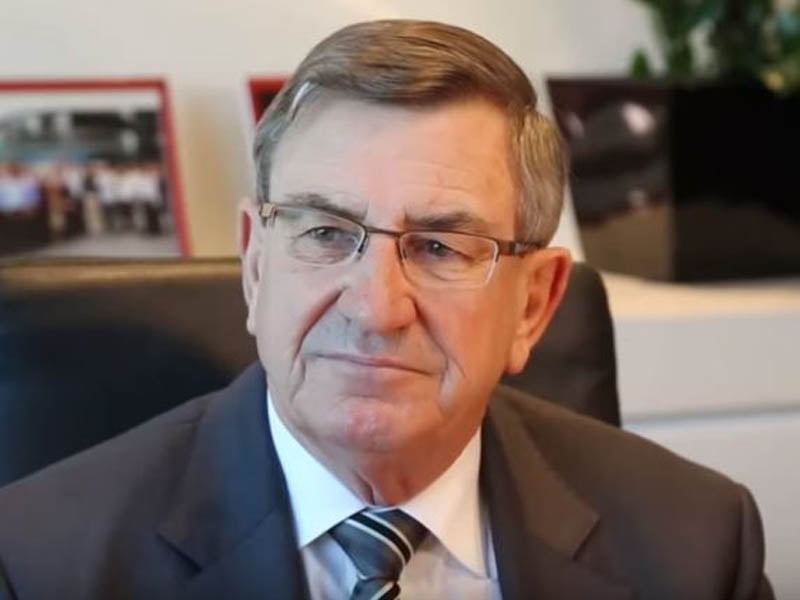Australia cannot simply isolate itself from technology and innovation originating from China and the rest of Asia without potentially damaging the nation’s future economic growth prospects, according to Huawei Australia chairman John Lord.
As Australia’s security and intelligence agencies deliberate over whether to ban Huawei from being a technology supplier to the 5G mobile networks in Australia, Mr Lord told the National Press Club the company posed no threat to Australian security interests.
Huawei was the “most audited, inspected, reviewed and critiqued global player in the world,” Mr Lord said. Despite scrutiny over a long period by jurisdictions across the world, nothing sinister has been found.

“No wrong doing, no criminal action or intent, no ‘back door, no planted vulnerability and no ‘magical kill switch’,” he said. “In fact, in our three decades as a company no evidence of any sort has been provided to justify these concerns by anyone, ever.”
Despite Mr Lord’s assertions, Australian intelligence services have felt enough of a threat to engineer a circumvention of Huawei’s involvement in a $200 million cable linking Australia to the Solomon Islands, and now seem to favour a 5G ban for the company.
Mr Lord urged an open discussion in Australia about understanding the emergence of technology leaders from China and the region and the reality that these companies are playing a much greater role in establishing the technical standards that underpin global technology development.
Regardless of the specific Huawei 5G circumstance, this is an uncomfortable truth as it challenges the established thinking that suggests advances in ICT come from the US or Europe.
“A new global reality has emerged in the world of innovation and technology,” Mr Lord said. “The US and Europe no longer are the only source of technical and business leadership.”
“Companies from Asia, particularly China, are now driving the innovation agenda, alongside the giants of Silicon Valley. This has implications across all industries, not just telecommunications,” he said.
“For some Western political and business leaders, the rise and influence of China is not easy to accept. In the innovation sectors, traditionally, we have relied on European and US sourced technology to connect us.
“This orthodoxy is being challenged by the rise of Asia and the rebalancing of the global ICT industry.”
This is perhaps a separate issue to the concerns of Australian intelligence and security agencies. But Mr Lord points to other Western governments – including Five Eyes members like the UK and Canada – that use Huawei products in core networks and which have set up their own testing facilities to satisfy concerns.
This is where established thinking must be challenged, he says. While the controversy is about Huawei today, there are other tech giants from China that are on the horizon and driving new technology that Australia would be foolish to ignore.
“There is no doubt that more Huawei’s are coming. We can’t pretend the rise of smart China isn’t happening.”
“Australia cannot sit back and think it can isolate itself from the technology rise of Asia,” Mr Lord said.
“To do so would impact on us economically and remove ourselves from world-leading technology, while our trading competitors take full advantage of better technology, cheaper costs for that technology and benefit from the productivity gains that flow,” he said.
“The suggestions that Huawei, the largest provider of 4G technology in Australia today, should be banned from building 5G networks here should be a concern for everyone and every business in Australia.
“The implications about limiting access to technology competition will be devastatingly high – and is a short term, small minded choice rather than seeking to incorporate all technologies in a solution that also secures our critical structures.
“In saying no to one of the leading 5G suppliers in the world, what are we doing? This is not just a tough political decision. This is a long-term technology decision that could impact our growth and productivity for generations to come,” Mr Lord said.
Disclaimer: The author paid for his own flights and accommodation to visit the Huawei campus in Shenzhen in 2015 to tour the company’s R&D facility.
Do you know more? Contact James Riley via Email.

